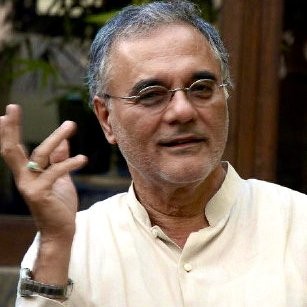

 Belknap Press
Belknap Press
Neither Settler Nor Native: The Making and Unmaking of Permanent Minorities


Key Metrics
- Mahmood Mamdani
- Belknap Press
- Paperback
- 9780674278608
- -
- -
- Political Science > Colonialism & Post-Colonialism
- English
 Secure Transaction
Secure TransactionBook Description
Prospect Top 50 Thinker of 2021
British Academy Book Prize Finalist
PROSE Award Finalist
Demonstrates how a broad rethinking of political issues becomes possible when Western ideals and practices are examined from the vantage point of Asia and Africa.
--Pankaj Mishra, New York Review of Books
Mamdani argues that the colonial 'define and rule' attitude towards ethnic or religious minorities lives on in postcolonial states. Such politicization of identity (you could even call it identity politics) often leads to extreme violence.
--Prospect
Mamdani has carved out a reputation as a forceful and articulate critic of political modernity's supposed peace-bringing qualities...[His] most comprehensive exploration yet of the subject of majority-minority relations.
--The Baffler
Mamdani persuasively argues that there will be no decolonization, no democracy, no peace until we de-link the association between the 'nation' and state power.
--Nandita Sharma, The Wire
In case after case around the globe--from Israel and South Africa to Sudan--the colonial state and the nation-state have been mutually constructed through the politicization of a religious or ethnic majority at the expense of an equally manufactured minority.
The model emerged in North America, where genocide and internment on reservations created both a permanent native underclass and the physical and ideological spaces in which new immigrant identities crystallized as a settler nation. In Europe, this template would be used both by the Nazis and by the Allies. Neither Settler nor Native offers a vision for arresting this process. Mamdani rejects the criminal solution attempted at Nuremberg. Political violence demands political solutions: not criminal justice for perpetrators but a rethinking of the political community for all--victims and perpetrators, bystanders and beneficiaries. Making the radical argument that the nation-state was born of colonialism, he calls us to reject political violence and move beyond majorities and minorities.
Author Bio
Mahmood Mamdani is the Herbert Lehman Professor of Government. He received his PhD from Harvard University in 1974 and specializes in the study of African history and politics. His works explore the intersection between politics and culture, a comparative study of colonialism since 1452, the history of civil war and genocide in Africa, the Cold War and the War on Terror, and the history and theory of human rights. Prior to joining the Columbia faculty, Mamdani was a professor at the University of Dar-es-Salaam in Tanzania (1973–1979), Makerere University in Uganda (1980–1993), and the University of Cape Town (1996–1999).
He has received numerous awards and recognitions, including being listed as one of the "Top 20 Public Intellectuals" by Foreign Policy (US) and Prospect (UK) magazine in 2008. From 1998 to 2002, he served as President of CODESRIA (Council for the Development of Social Research in Africa). His essays have appeared in the New Left Review and the London Review of books, among other journals.
He teaches courses on: major debates in the study of Africa; the modern state and the colonial subject; the Cold War and the Third World; the theory, history, and practice of human rights; and civil wars and the state in Africa.
Mamdani’s books include Saviors and Survivors: Darfur, Politics, and the War on Terror (2009); Good Muslim, Bad Muslim: America, the Cold War and the Roots of Terror (2004); When Victims Become Killers: Colonialism, Nativism and Genocide in Rwanda (2001); Citizen and Subject: Contemporary Africa and the Legacy of Late Colonialism (1996), which was awarded the Herskovitz Prize of the African Studies Association; Politics and Class Formation in Uganda (1976); From Citizen to Refugee(1973); and The Myth of Population Control: Family, Class and Caste in an Indian Village (1972).
Columbia University Department of Anthropology
Videos








Community reviews
Write a ReviewNo Community reviews